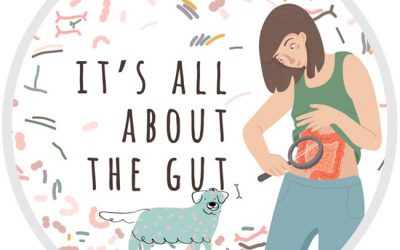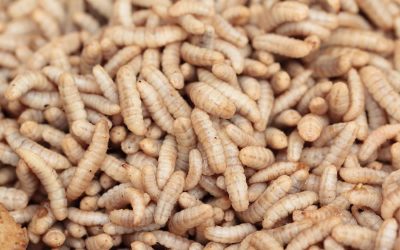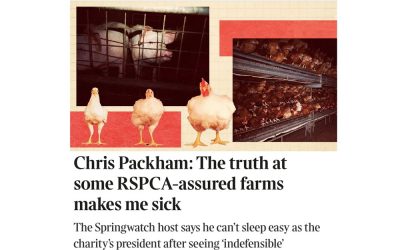The biggest controversy surrounding grain-free diets and those high in legumes has been the link between these diets and DCM (Dilated Cardiomyopathy).
New research from University of Guelph in Canada shows that inclusion of the legumes lentils, beans and peas are safe for healthy dogs.
This latest research, which appeared in April 2023 in The Journal of Nutrition, found that dogs fed diets containing up to 45% whole pulse ingredients and no grains over 20 weeks showed no indications of heart issues.
As well, the dogs’ body composition altered less than 0.1% from baseline no matter which diet they were on, suggesting they also maintained lean body mass.
“This study is the longest, controlled feeding study to date to assess cardiometabolic health in healthy adult dogs fed pulse-inclusive diets,” said lead author Dr. Kate Shoveller, a professor in the Department of Animal Biosciences in the Ontario Agricultural College and Champion Petfoods Chair in Canine and Feline Nutrition, Physiology and Metabolism.
Dr. Adronie Verbrugghe, clinical studies professor and Royal Canin Veterinary Diets Endowed Chair in Canine and Feline Clinical Nutrition at the Ontario Veterinary College (OVC), added: “This research is important to help vets make evidence-based diet recommendations for their patients. Some dogs might be healthy, but others could have specific health conditions for which protein sources and content are targeted.”
A published study in 2023 where 15 dogs were fed a nutritionally balanced plant-based diet over a year and were assessed at each stage, also failed to show any change in heart parameters.
This study looked at dogs’ health over 12 months. The dogs were fed on a meat-free diet based on pea protein. It was a small-scale study of 15 healthy dogs that assessed complete blood count, blood chemistry, cardiac biomarkers, plasma amino acids, and serum vitamin concentrations. All dogs remained healthy.
Interestingly, high-legume diets, especially those with peas continue to be scrutinised in the U.S. to see if there is a link between grain-free, high-legume-based diets and condition dilated cardiomyopathy (DCM). One of the cardiac markers assessed when looking for DCM is Cardiac troponin I (cTnI). Troponin proteins only enter the bloodstream when there is heart muscle damage. In this study, three dogs had slightly increased levels of cTnI (when fed on meat-based diets) compared with only one dog at the end of the study. However, none of the figures were classed as significantly different. It should also be noted that this study has not been peer-reviewed, and it was a small sample size, so further research is needed.
What does top UK veterinary cardiologist Dr Nuala Summerfield have to say about dogs on a plant-based diet and heart health?
“I have been feeding my two dogs on Solo Vegetal complete dry food for the past 18 months. I initially switched to Solo Vegetal on recommendation from another veterinary colleague, when I was looking for a suitable food for my two rescue dogs, Arthur a 5-year-old Golden Retriever and Elsie a 7-year-old Cavalier King Charles Spaniel cross.
Both were in poor physical health when we took them on. Solo Vegetal has been so beneficial for both dogs and has really helped their gastrointestinal and skin issues. It seems to be extremely palatable (they love it!), they remain at an ideal body weight and both dog’s coats are thick and lustrous.
As a cardiology specialist I am very aware of the importance of feeding a balanced diet to ensuring cardiac health. Arthur and Elsie’s hearts are regularly scanned in the cardiac ultrasound CPD courses that I teach, so I know that their hearts are in great shape! Their exercise tolerance is phenomenal, and I am really pleased with this particular plant-based diet, having tried several non-plant-based diets for them both initially.”
FDA ends DCM updates as no link with dog foods found
The report below from December 2022 shows that the FDA (the United States Food and Drug Administration) who originally started the possible link, have now dropped all research as not enough evidence has been found.
Read full article below
FDA ends DCM updates as no link with dog foods found
In 2022, the United States Food and Drug Administration continued investigating cases of non-hereditary canine dilated cardiomyopathy, including correlations with certain dog foods and ingredients. However, after declining case reports, the agency plans to end routine updates on the investigation.
The FDA received far fewer reports of DCM cases from 2020 to 2022 compared to the preceding two years. In total, the FDA received 1,382 reports of DCM from Jan1, 2014 to Nov 1, 2022. However, most of those case reports clustered around the dates of FDA announcements about its investigation of correlations among grain-free dog foods and DCM.
The FDA stated it had insufficient data to establish causality among DCM case reports and pet food products eaten by afflicted dogs.
“FDA does not intend to release further public updates until there is meaningful new scientific information to share,” the agency announced in a press release on Dec 22
“FDA has followed up on a subset of these reports, but is unable to investigate every report to verify or confirm the reported information. While adverse event numbers can be a potential signal of an issue with an FDA-regulated product, by themselves, they do not supply sufficient data to establish a causal relationship with reported product(s). FDA continues to encourage research and collaboration by academia, veterinarians, and industry.”
Canine dilated cardiomyopathy heart disease
DCM affects dogs’ heart muscles. The disease results in an enlarged heart. As the heart and its chambers become dilated, pumping becomes more difficult and heart valves may leak, leading to a buildup of fluids in the chest and abdomen. DCM often results in congestive heart failure. Heart function may improve in cases that are not linked to genetics with appropriate veterinary treatment and dietary modification if caught early.
Breeds that are typically more frequently affected by DCM include large and giant breed dogs, such as Great Danes, Boxers, Newfoundlands, Irish Wolfhounds, Saint Bernards and Doberman Pinschers. It is less common in small and medium breed dogs, except American and English Cocker Spaniels. Cases reported to the FDA included Golden and Labrador Retrievers, Whippets, a Shih Tzu, a Bulldog and Miniature Schnauzers, as well as mixed breeds.
Total canine DCM case reports updated
The FDA also updated its case report data in its Questions & Answers: FDA’s Work on Potential Causes of Non-Hereditary DCM in Dogs
The following is an excerpt from the updated FDA Q&A related to the DCM study. The order has been altered to focus on questions most relevant to the pet food industry.
Canine Microbiome Study Significant Findings
Dogs have adapted genetically to digesting starches and that explains why they do so well on a complete plant-based diet
Studies claim positivity with alternative pet diets
Many owners willing to consider alternative pet diets, studies claim with a high proportion of cat and dog owners now prepared to explore alternative, more sustainable diet options
Plant-based vs Insect-based dog food
Insect Protein-Based Diets as Potential Risk of Allergy in Dogs, and Higher Cost
Avian Flu Pandemic Risk from Raw Feeding
The APHA (Animal Plant and Health Agency.gov.uk) sends anyone interested in environmental matters, emails about looming threats. As a vet, this is what I have received recently in my email inbox - In my inbox yesterday 11th November - An Avian Influenza Prevention...
Raw dog and cat food fuelling spread of antibiotic-resistant bacteria
The very real and always present danger of this latest study yet again finding antibiotic-resistant bacteria in raw commercial cat foods!
UK Petfoods MUST Keep Up!
Using animal byproducts in meat and fish-based pet foods is NOT sustainable!
Cats dying after eating Avian-Influenza-contaminated raw pet food!
Does vegan cat food provide the solution?
Fermented Protein Pet Food – the Future?
Is precision fermentation our future way to feed not only our pets, but ourselves too? Yes it most certainly is!
Could our dogs or cats trigger an avian influenza pandemic?
As our memories of the last COVID 19 disappear, the potential for another pandemic looms and pets could play a role in transmitting it
Using microbial protein for the very first time in dog treats!
This first-of-its-kind protein is derived from bacteria that have been consumed by humans for centuries in foods such as kimchi, kefir, and sauerkraut
BVA says it is possible to feed dogs plant-based
The British Veterinary Association (BVA) has ended its opposition to (nutritionally-sound) vegan diets for dogs
The truth about ‘RSPCA Assured’ farms
The footage obtained from these farms, including distressing images of decomposing pigs, dying chicks, and salmon with missing eyes, is simply indefensible
Recommended sustainable pet foods


















